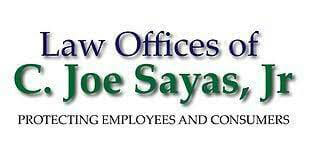California law protects whistleblowers from retaliation

Jason Briley worked as a Deputy Fire Marshal for the City of West Covina for 9 years. During his tenure, Briley discovered that the city violated multiple Fire Code Regulations. He also found that the city accepted money from a developer, and issued a building permit before the Fire Dept. had approved the building plans. After several complaints, he finally reported the City Manager and Fire Chief to the city’s Human Resources Department. Briley’s complaints led to an investigation against the City Manager and Fire Chief.
Immediately after his complaints, Briley received negative performance evaluation. He was investigated for allegedly treating people rudely, and was then recommended for termination by the Fire Chief he accused of misconduct.
Briley sued the city for wrongful termination based on whistleblower retaliation. He claimed that he was terminated for reporting the Fire Code violations involving the City Manager and Fire Chief.
The city countered that Briley was terminated because he was rude to members of the public, city employees and that he had lied to an investigator.
The case went to trial, and after deliberating for three hours, the jury returned a verdict in favor of Briley, awarding him $4,003,000 in damages.
An employee who challenges an employer’s illegal conduct may face demotion or termination. If this is the case, the employer’s conduct constitutes unlawful retaliation. In a retaliation claim, an employee must prove that she/he engaged in protected activity. Engaging in “protected activity” means that the employee must oppose a practice which is forbidden by law (e.g. not paying overtime or not complying with safety laws). The complaint may be internal and made to managers or officers in the company. Or the complaint could be external and made to government agencies.
Additionally, courts have held that “protected activity” includes complaints or opposition to conduct the employee “reasonably” and in “good faith” believes to be unlawful, even if the conduct is not actually prohibited under the law.
When engaging in a protected activity, such as requesting wage payments due or complaining about safety issues, employees should document their claims. Some employees may think that anonymity protects them. However, the opposite is true. Presenting written complaints in a professional manner, will make it harder for the employer to ignore. More importantly, it creates a record that will later be reviewed to determine the true reasons why any action was taken against the employee.
California’s Whistleblower Protection Act protects whistleblowing employees from retaliation by their employers. An employer shall not retaliate against an employee for providing information to a government or law enforcement agency, where the employee reasonably believes that a violation of law has occurred. The employer cannot also retaliate against an employee who refuses to participate in activities that violate the law.
The law protecting whistleblowers was expanded to cover employees who complain within a company about unlawful practices. It also applies to cases where the employee truly believed the conduct they complained about was unlawful, even if it was not.
Employees who prove they were retaliated and wrongfully terminated may recover loss of earnings, emotional distress, and in certain cases, attorneys’ fees and costs, and punitive damages.
The Law Offices of C. Joe Sayas, Jr. welcomes inquiries about this topic. All inquiries are confidential and at no-cost. You can contact the office at (818) 291-0088 or visit www.joesayaslaw.com. [C. Joe Sayas, Jr., Esq. is an experienced trial attorney who has successfully recovered wages and other monetary damages for thousands of employees and consumers. He was named Top Labor & Employment Attorney in California by the Daily Journal, consistently selected as Super Lawyer by the Los Angeles Magazine, and is a Presidential Awardee for Outstanding Filipino Overseas in 2018.]

